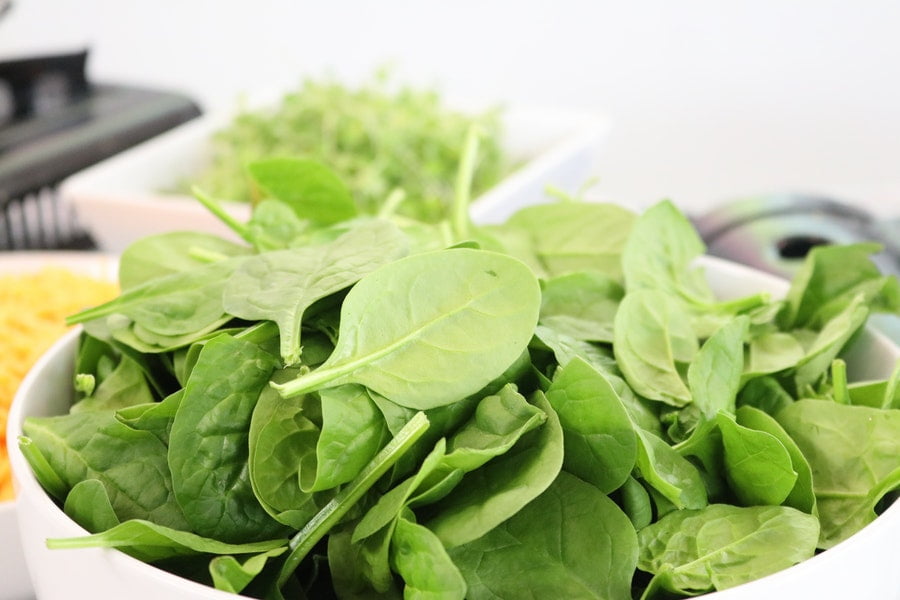Zinc in Spinach is a great resource because it contains high levels of antioxidants called lutein and zeaxanthin. These antioxidants help protect the eyes from damage caused by UV light. Zinc also helps the body fight infection and supports healthy skin and hair.
What is zinc?
Zinc is an important mineral for human health. It is needed for growth and development, for cell division, DNA synthesis, and protein production. Spinach is high in zinc content, making it a great food choice for those looking to increase their intake of this essential mineral.

Zinc is necessary for a number of bodily functions, including:
- Gene expression
- Enzymatic reactions
- Immune function
- Protein synthesis
- DNA synthesis
- Wound healing
- Growth and development
Natural sources of zinc include a wide range of foods from both plants and animals. Foods like morning cereals, energy bars, and baking flour that don’t naturally contain this element are frequently fortified with synthetic zinc.
Zinc is an important mineral that is found in many foods. However, some foods like morning cereals, energy bars, and baking flour that don’t naturally contain this element are frequently fortified with synthetic zinc. While this may seem like a good wellness tips to ensure that you’re getting enough zinc, it’s important to be aware of the potential health risks associated with consuming synthetic zinc.
One of the main dangers of consuming synthetic zinc is that it can interfere with your body’s ability to absorb other minerals, including copper and iron. This can lead to deficiencies in these minerals, which can cause a variety of human health problems. Additionally, synthetic zinc has been linked to numerous human health issues, including liver damage and cancer. So if you’re looking for a way to boost your intake of zinc, it’s best to look for foods that naturally contain this mineral.
You can also take multi-nutrient pills that contain zinc or zinc supplements. Zinc is a mineral found in leafy green vegetables like spinach. While the body only requires a very small amount of zinc, it is an essential nutrient for many different processes including wound healing, protein synthesis, and immune function.
Zinc is also necessary for the activation of vitamin A, which is important for vision, skin health, and the immune system. Getting enough zinc from food sources can be difficult, so many people choose to take multi-nutrient pills that contain zinc or zinc supplements. Zinc is also used in several nasal sprays, lozenges, and other natural cold remedies due to its role in immunological function.
What are the benefits of zinc?

Zinc is a mineral that is important for human health. It is found in many foods, including spinach. Zinc has many benefits for human health, including:
• helping the body to heal wounds
• helping the body to fight infection
• helping the body to grow and develop properly
• keeping the immune system strong
• helping with blood sugar control
• reducing inflammation.
Zinc is found in many foods including meat, poultry, fish, beans, nuts, and dairy products. Zinc is also available as a dietary supplement. Some of the benefits of zinc include:
Zinc is necessary for normal growth and development during childhood. It is also necessary for the proper functioning of the immune system. Zinc can help protect against infection and may shorten the duration of a cold or flu. This ingredient may also help improve symptoms in people with conditions such as asthma, diabetes, and rheumatoid arthritis.
Additionally, it is essential for the growth and operation of immune cells (4Trusted Source). Additionally essential for maintaining healthy skin, producing protein, and synthesizing DNA (5Trusted Source). Additionally, zinc is necessary for body growth and development due to its role in cell proliferation and division (6Trusted Source).
Your perceptions of taste and smell depend on zinc as well. A zinc shortage might impair your sense of taste or smell since it is necessary for one of the enzymes essential for healthy taste and smell.
Where is zinc found?

Zinc is found in a variety of foods, but is especially concentrated in meat and seafood. It is also found in high levels of whole grains, beans, and nuts. Dairy products and eggs are good sources of zinc as well.
Surprisingly, zinc is also found in significant levels in leafy green vegetables like spinach. While the amount of zinc present varies depending on the soil conditions where the spinach was grown, one cup of cooked spinach typically contains around 2-3 milligrams of zinc.
Why is there so much zinc in Spinach?
Spinach is a leafy green vegetable that is a rich source of many vitamins and minerals, including zinc. Zinc is an important mineral for human health, and is found in many foods. Spinach is particularly high in zinc compared to other vegetables. The reason for this is not fully understood, but it may be due to the presence of phytates in spinach.
Phytates are compounds that can bind to minerals like zinc, preventing their absorption. However, the phytates in spinach are also thought to have some health benefits, such as reducing the risk of cancer. So while the high levels of zinc in Spinach may not be ideal for absorption, they still provide a number of health benefits.
Spinach also contains small amounts of other minerals, including iron and copper. Spinach is a good source of dietary fiber, vitamin A, vitamin C, vitamin K, thiamin, riboflavin, niacin, vitamin B6, folate, pantothenic acid, and vitamin E.
In conclusion, Zinc in Spinach is a nutrient that is essential for good health. A lack of zinc can lead to problems such as stunted growth, a weak immune system, and hair loss. Spinach is a good source of zinc, so eating spinach can help you meet your daily needs for this nutrient. Zinc is also found in other leafy green vegetables, legumes, nuts, and meat.
Choline is an essential nutrient that is needed for cell division and formation of healthy new cells. A lack of choline can lead to deficiencies in the liver and nervous system, and symptoms of choline deficiency include poor memory and learning abilities.

